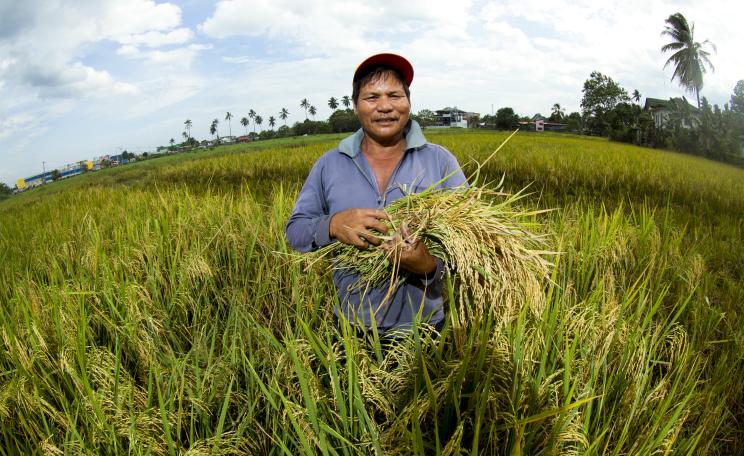Crickets emit less than 0.1 per cent of the greenhouse emissions of cows to produce the same amount of protein.
The way we eat is not sustainable. Modern industrial agriculture, extractive capitalism, and greedy western appetites are all, in part, to blame.
Seeking alternatives to current farming methods is fundamental to addressing the climate crisis. The search is already underway, with “alternative meat” companies such as Beyond meat, This and Meatless farm now successfully hitting UK supermarkets.
However, to allow our planet to recover, we will need multiple solutions that cater for different climates and landscapes. So should this include eating insects?
Benefits
Nutrition
More than two billion people worldwide, particularly in Asia, Africa and South America, already eat insects as a staple part of their diet. This is unsurprising given they are safe to eat, abundant, calorie-dense and nutritious.
Insects provide high-quality complete protein - up to 69 per cent depending on how they are prepared, far surpassing that of meat or fish. They are complete as they contain all nine essential amino acids and are rich in fibre, iron and calcium.
Environmental impact
Research into farming insects for food has grown rapidly and there are now more than 400 companies producing insect protein globally.
Insects can be farmed almost anywhere with little environmental impact. Ynsect, a French company, uses 98 per cent less land and emits 40 times less carbon than beef per kilo produced.
Francesco Majno, the Italian entrepreneur behind the Small Giants cricket snacks, claims that its crickets emit less than 0.1 per cent of the greenhouse emissions of cows to produce the same amount of protein.
Insects also require very little water - even less than chickpeas! They’re fed on by-products of the food industry. And their excrement is used as fertiliser for crops - all contributing to the circular economy.
Efficiency
Many insects also reach maturity in days rather than the months or years it takes livestock and can produce thousands of offspring - making them incredibly efficient.
Their life cycles are also highly conducive to factory farming: at certain stages of their lives they produce heat and at other stages they need heat, so an indoor farm can be more efficient than an outdoor farm in a warmer climate.
Barriers
Yuck factor
Despite the benefits, we still have a way to go before insects feature prominently in western diets.
Insect protein is not as sexy as alternative meat, and will be competing with brands that have long histories, large marketing budgets and lower price points.
Eat Grub’s whole insects did manage to get onto Sainsbury’s shelves in 2018 but have been removed since - a sign that westerners aren’t quite ready for crunchy roasted crickets.
At the moment, using insects in familiar products such as mince, crackers and tortilla chips is a surer route to acceptance. VEXo mince, a plant and insect based mince, is a great example of how insects could slowly be weaved into much loved foods such as burgers and meatballs.
Brexit
Prior to the new EU food regulations, people had been able to eat and trade insect products freely in the UK. However, Brexit made things complicated, with no clarity on the legal status of edible insect products in the UK in the transition agreement.
Because insects are categorised as Novel Foods, there is a costly barrier to trading. Companies must apply for authorisation of their products, which is not an easy process and has become a major financial challenge for many companies.
However, there has been positive progress. At the end of last year, the Food Standards Agency gave the green light for some species of mealworm, cricket and fly to be put back on the table in the UK because they were included in the EU transition agreement.
Transition
But attitudes are starting to change. By 2027, the edible insects market is projected to reach £3.36bn.
The future of food is one in which insects are part of the solution, helping us transition away from the disastrous land-intensive, industrial agriculture most of us currently thrive off.
It has taken the plant-based food movement decades to get to where it is now, so if insects can do the same, it will be a big win.
This Author
Sophie Johnson is a zoology graduate and passionate conservation blogger from the UK.







